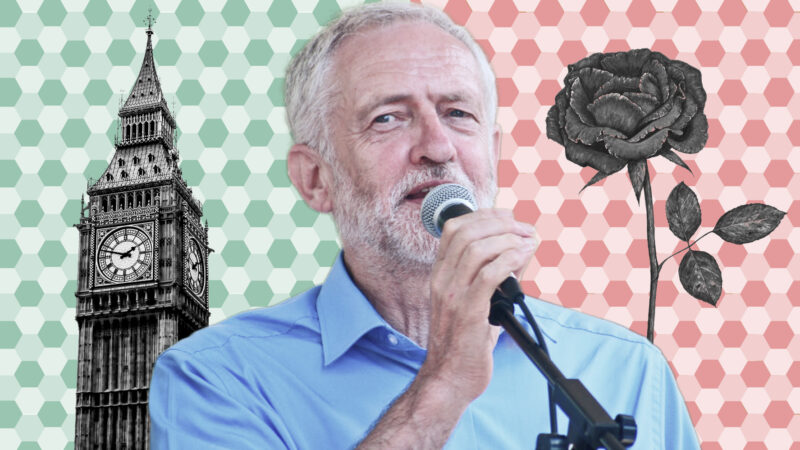
When I first moved to Britain in 2014, I had a very rose-tinted vision of the country I was about to make my home. Cosmopolitan and progressive, comfortable in its role as a global cultural leader, the image of “Cool Britannia” popularised by Tony Blair was what I expected. But what I discovered felt very different.
My first few months in Britain were spent in a small village in Essex. I noticed the lack of public transport infrastructure, which meant I was trapped without a car. I went on long walks and was surprised to see so much badly maintained housing on gloomy roads in neglected neighbourhoods. Above all, I noted that most people either commuted to central London to their well-paid city jobs, or worked in one of the high street shops and pubs on low wages. It seemed there was little in between.
From home, I was used to a handful of local small to medium-sized specialist manufacturing businesses providing skilled, well-paid jobs for the local community. I couldn’t see much of an equivalent here. These observations were symptoms of a society that appeared to be organised slightly differently to the one I grew up in. Britain, as an Anglo-Saxon mixed market economy, is more orientated towards financial markets, offers lesser protections for workers and a limited welfare state.
In comparison, a social market economy like Germany – whilst still operating within the neoliberal framework of free market economics – places greater emphasis on state intervention and social security. Although fundamentally still a capitalist organisation of society, these extra layers of social protections mean the oppressive characteristics of the economic system and its contradictions are less immediately obvious.
When Jeremy Corbyn entered the race to become leader of the Labour Party in 2015, he felt like the common sense choice to me. Corbyn articulated what I understood to be social democracy. His surprise leadership victory was a reflection of the growing antagonism in society after decades of intensifying struggle. The coalition austerity measures had further eroded this country’s social fabric, sharpening the divisions between the working class in its diversity, and middle- and upper-class Britons.
Labour’s centrist wing was unable to grasp the surge of Corbynism because it pursues a political strategy of “managerial consensus”. They do not believe in the antagonistic struggle of the labour movement against the powerful elites, but rather in a technocratic solution explored by experts, after having “listened to people”. And yet listening can be a passive exercise if we do not empower the people we are apparently “listening to” and allow them to take matters in their own hands.
Corbynism promised to exploit this antagonism and turn the Labour Party into a mass movement of the many to take on the establishment few. In the course of Corbyn’s leadership, the party made some important strides forward in its political programme. Grassroots initiatives such as the Labour Campaign for a Green New Deal or the Labour Campaign for Free Movement won groundbreaking victories at conference. In September 2019, it still felt like we were just putting in place the important building blocks for an ambitious, radical movement that could change the world.
The dream was cut short in December 2019, however. It looked as if the contradictions within the Labour Party had pulled the project apart. As is often said, the Labour Party is a broad church. But perhaps the limitations of Corbynism are as much linked to the limits of the parliamentary road to socialism per se, and the institutional limitations of a political party are a direct reflection of that.
Despite the fact that Jeremy Corbyn, John McDonnell and Diane Abbott can look back at decades of involvement in grassroots struggles, eventually they watered down some of the more radical political demands and proposals for party reform made by the membership. The Labour Party, even in a social democratic form, still operates within a framework that exists to uphold our current political and economic structures. It could even be argued that social democracy (and in particular Keynesianism) will do more to hinder the emergence of an emancipated working-class movement to challenge economic and political power.
At times of economic crisis, the ruling classes will be willing to deploy Keynesian measures to stimulate the economy and cushion the blow. They are aware that this is necessary to ensure capitalism’s survival. We can observe this now in the government’s response to Covid-19. A political project of the left should not see these policies as its end goal. Parliamentary social democracy in other countries has thus far not materialised as the stepping stone to further socialist reform, and it is worth questioning whether this route will ever lead to victory.
Even Karl Marx seemed to have believed that England might be uniquely placed to overthrow capitalism peacefully and within legal means. Socialists in Labour can be forgiven for wanting to have a crack at it. But as Corbynism comes to an end, maybe now is the time to reorientate ourselves outwards again and build a political project that can truly take the country over from below.




More from LabourList
‘Europe must stand strong on its own as US security guarantees grow conditional’
‘Tackling poverty should be the legacy of Keir Starmer’s government’
‘The High Court judgment brings more uncertainty for the trans community’